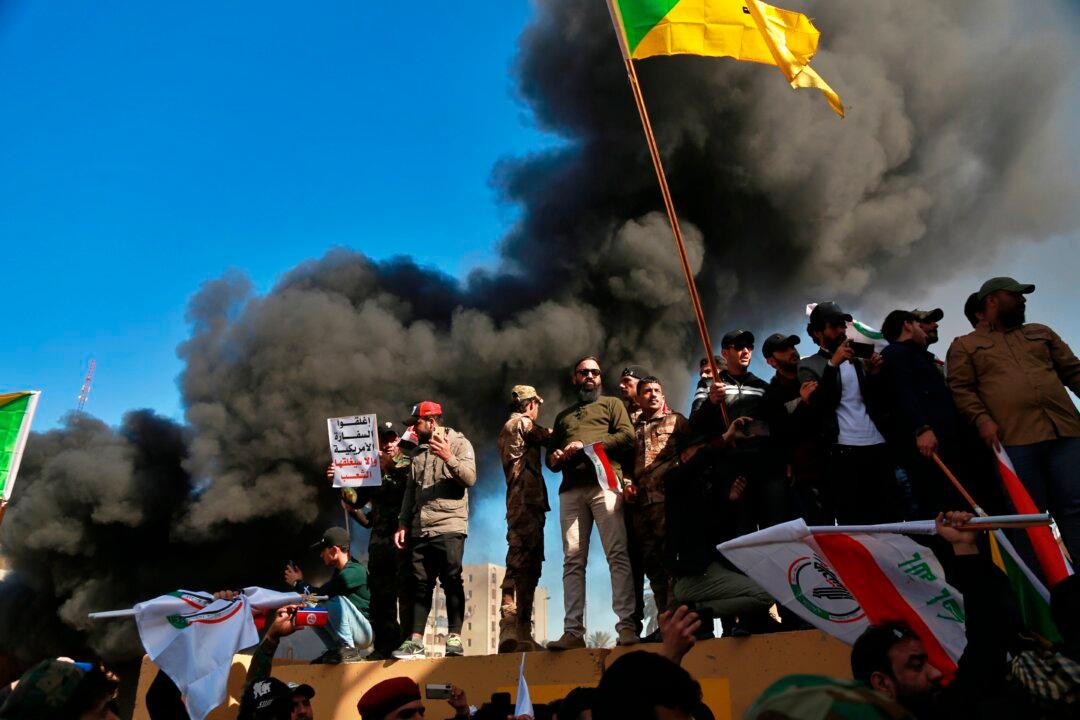Supporters of an Iran-backed terrorist group began to withdraw from the U.S. Embassy in Baghdad on Jan. 1, a day after they stormed the outer perimeter and prompted President Donald Trump to dispatch extra troops to the region and threaten reprisals against Iran.
Dozens of attackers linked to the Iran-backed Kataib Hezbollah terrorist group smashed a main door to the embassy compound on Dec. 31 and set fire to a reception area, but didn’t breach the inner compound. The attack was in response to U.S. airstrikes that targeted the same terrorist group and killed at least 25 people. No U.S. casualties or evacuations were reported after the attack.





